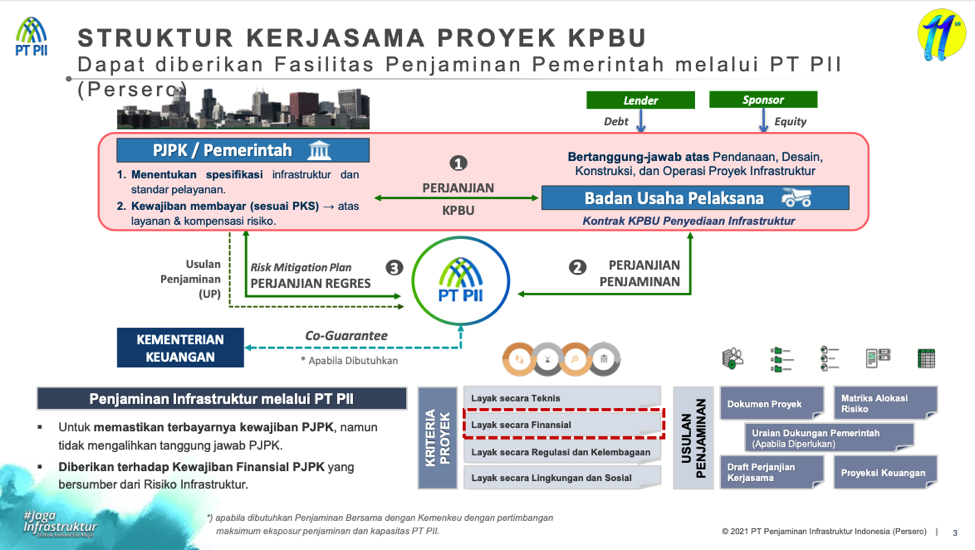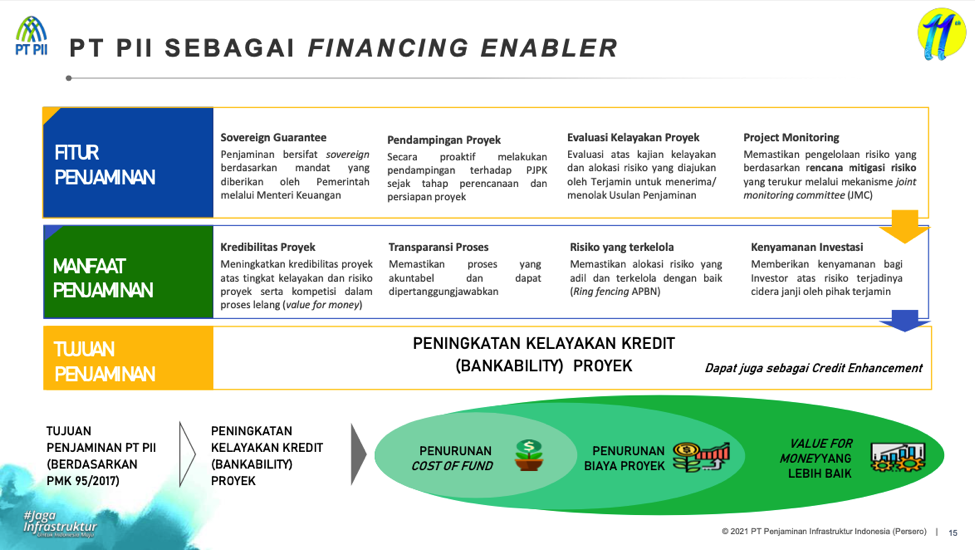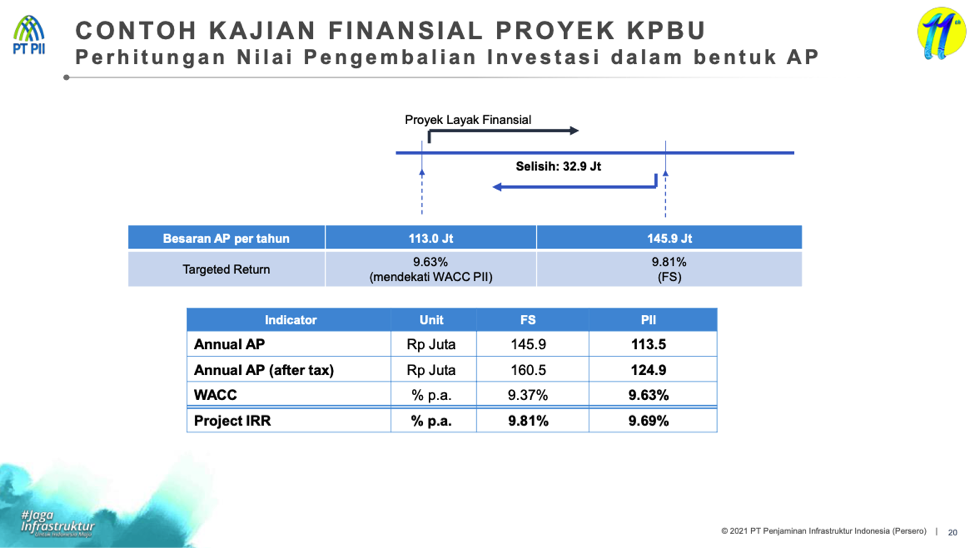As a developing country, Indonesia requires plenty of infrastructure projects. But, many infrastructure projects require a very large source of funding. Hence, the limitations of the Indonesian government in funding infrastructure projects have led to the need for a cooperation system designed to run infrastructure projects.
SBM ITB had the good opportunity having Andre Permana as guest lecturer in Bachelor of Management program on Financial Management course, Tuesday, 27 April 2021.
This is where PT Penjaminan Infrastruktur Indonesia comes into play. Andre Permana, the Executive Director of PT Penjaminan Infrastruktur Indonesia, joined in the discussion of the responsibilities and the roles that PT Penjaminan Infrastruktur Indonesia has in infrastructure development in Indonesia.
PT Penjaminan Infrastruktur Indonesia (PII) is a state-owned enterprise institution under the Ministry of Finance’s auspices that was established to help Indonesia accelerate through the public-private partnership scheme. One of PII’s contributions to Indonesian infrastructure growth is the provision of contingent fiscal support for public-private partnership infrastructure projects in the form of contractual risk assurances for government acts.
A public-private partnership (PPP) is a contract between public (national, state, regional, or local) and private entities in which the public and private sectors’ expertise, assets, and/or financial resources are allocated in a complementary manner, thus sharing risks and rewards, to provide optimal service delivery and a good value to people.
The government is responsible for determining the specification of the infrastructure and the service standards that they need. Additionally, they are also to provide funding for the services that the executing business entity delivered. On the other hand, the executing business entity is responsible for the design and implementation of what has been requested by the government.


PT PII serves as a one-stop enabler for managing the provision of all guarantees for public-private partnerships. As a result, all government guarantee demands must go through PT PII first. PT PII will conduct all examinations and evaluations relevant to the assurance of public-private partnership programs. In case that the relationship and collaboration between PT PII and other guarantee providers are unable to provide complete guarantees on the agreed-upon guarantee decisions, the Ministry of Finance can still step in to provide guarantees.
As outlined in a Guarantee Agreement, PT PII will guarantee the financial commitments of the person in charge of the cooperation project to the private sector. As the only company that underwrites infrastructure in Indonesia, PT. PII must allocate risks in each project to be implemented. Risk allocation in public-private partnership projects requires particular consideration since it ensures the long-term availability of sufficient and effective infrastructure services for the general public. A successful risk allocation, on the other hand, would give the private sector confidence in returning their funds with a fair return. In terms of state finances, effective risk-sharing would make the state budget more secure since the contribution of public-private partnership projects to the state budget would be better calculated and managed.





